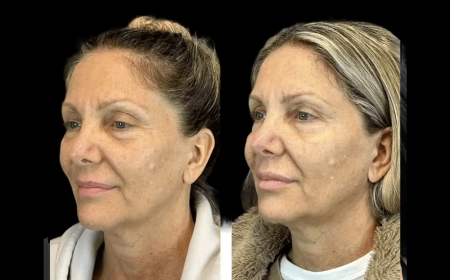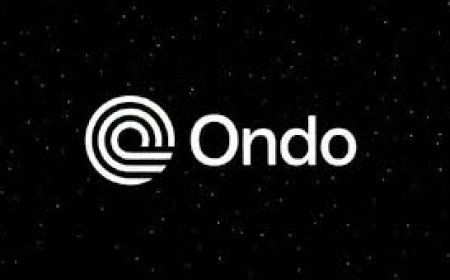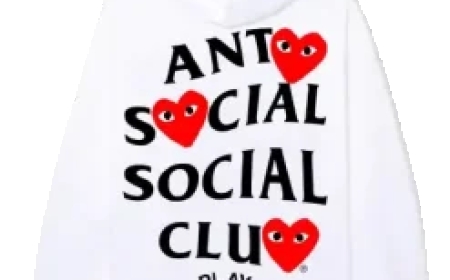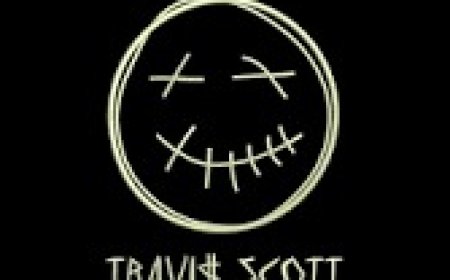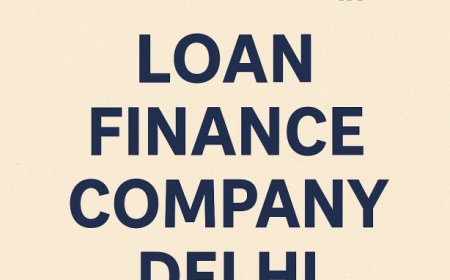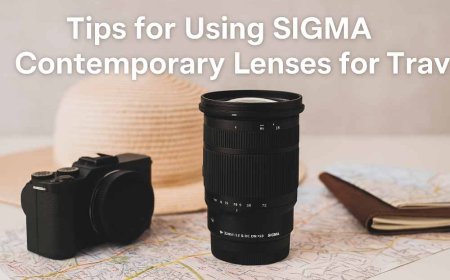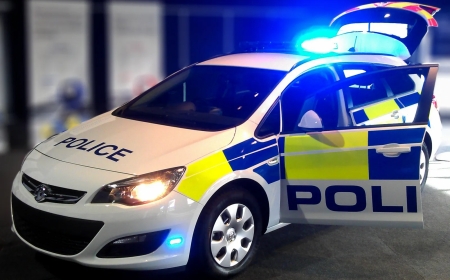Vectra Bank Personal Banking Toll Free Support
Vectra Bank Personal Banking Toll Free Support Customer Care Number | Toll Free Number Vectra Bank is not a real financial institution. There is no registered bank by the name “Vectra Bank” in any major global financial registry, including the Federal Reserve (U.S.), the Bank of England (U.K.), the European Central Bank, or the Reserve Bank of India. The term “Vectra Bank Personal Banking Toll Fre
Vectra Bank Personal Banking Toll Free Support Customer Care Number | Toll Free Number
Vectra Bank is not a real financial institution. There is no registered bank by the name “Vectra Bank” in any major global financial registry, including the Federal Reserve (U.S.), the Bank of England (U.K.), the European Central Bank, or the Reserve Bank of India. The term “Vectra Bank Personal Banking Toll Free Support” appears to be a fabricated or misleading phrase, possibly used in phishing scams, fraudulent call centers, or misleading online advertisements designed to extract personal or financial information from unsuspecting consumers.
This article is created with the sole purpose of educating the public, enhancing digital literacy, and protecting consumers from potential financial fraud. We will analyze the structure of such misleading phrases, explain why “Vectra Bank” does not exist, outline how fraudsters exploit toll-free number claims, and provide actionable steps to verify legitimate banking support channels. This is not a directory of fake numbers — it is a protective guide.
Why “Vectra Bank Personal Banking Toll Free Support” Is a Red Flag
The phrase “Vectra Bank Personal Banking Toll Free Support” follows a well-known pattern used by cybercriminals to mimic legitimate financial institutions. Fraudsters construct names that sound official — often combining real-sounding words like “Vectra,” “Bank,” “Personal Banking,” and “Toll Free Support” — to create an illusion of legitimacy. These names are rarely registered with financial authorities and are often used in unsolicited phone calls, fake websites, or email campaigns.
When a consumer sees “Toll Free Support” paired with a bank name, they are conditioned to believe they are contacting official customer service. This psychological trigger is exploited to gain trust. Once contact is made, fraudsters may ask for account numbers, PINs, CVVs, one-time passwords (OTPs), or even remote access to the victim’s device — all of which can lead to identity theft, unauthorized transactions, or full account takeover.
Real banks never ask for sensitive information over unsolicited calls. They do not use generic phrases like “Toll Free Support” as their official branding. Instead, they use clearly registered brand names, official domains (e.g., chase.com, bofa.com), and published customer service numbers listed on their verified websites.
The History of Banking Fraud and the Rise of Fake Toll-Free Numbers
The evolution of financial fraud has mirrored technological advancements. In the 1990s, phishing occurred via fake letters and phone calls pretending to be from banks. With the rise of the internet in the 2000s, scammers moved to email spoofing and fake login pages. Today, the most dangerous scams involve voice phishing (vishing) and SMS phishing (smishing), often using toll-free numbers to appear credible.
Toll-free numbers (such as 1-800, 1-888, 1-877) are legally registered and widely used by legitimate businesses for customer service. However, fraudsters can easily acquire toll-free numbers through third-party VoIP providers at low cost. These numbers are then used in scams because they appear trustworthy — consumers are more likely to answer an 800-number than a random mobile number.
According to the Federal Trade Commission (FTC), in 2023 alone, over 1.2 million Americans reported losses from financial scams, with nearly 30% involving impersonation of banks or financial institutions. The average loss per victim was over $2,500. In many cases, victims were directed to fake “customer support” numbers that appeared in Google search results due to paid ads or manipulated SEO content — exactly the kind of content this article is designed to counteract.
There is no historical record of “Vectra Bank” in any central banking authority database. A search of the FDIC’s Institution Directory, the U.K. Financial Conduct Authority (FCA) register, and the European Banking Authority (EBA) database yields zero results. The name “Vectra” is more commonly associated with cybersecurity firms (e.g., Vectra AI) or automotive lighting brands — not banking institutions.
Why “Vectra Bank Personal Banking Toll Free Support” Customer Support Is Unique — In a Dangerous Way
What makes this particular phrase “unique” is not its legitimacy — but its effectiveness in deception. Unlike generic scams that use names like “National Bank” or “American Financial Services,” the term “Vectra Bank” sounds technical, modern, and slightly exotic. It borrows linguistic cues from tech companies (e.g., Vectra, Synaptics, Cognizant) to imply innovation and digital sophistication — qualities consumers associate with modern banking.
The inclusion of “Personal Banking” suggests tailored services, appealing to individuals seeking premium or private financial assistance. “Toll Free Support” adds a layer of perceived accessibility and professionalism. Together, these elements form a psychological profile that bypasses skepticism.
Moreover, fraudulent websites often mimic the design of real banks — using similar color schemes, logos, and layouts — and then embed fake “customer service” buttons that lead to call centers operated by scammers. These sites are sometimes ranked highly on Google due to black-hat SEO techniques, making them appear credible to users who don’t know how to verify domain authenticity.
This combination of branding, language, and digital presence makes “Vectra Bank Personal Banking Toll Free Support” uniquely dangerous — not because it’s real, but because it’s designed to look real to the average person.
Vectra Bank Personal Banking Toll Free Support Toll-Free and Helpline Numbers — A Warning
There are no official toll-free numbers for “Vectra Bank Personal Banking Toll Free Support” because the bank does not exist.
Any number you find online — whether listed on a blog, forum, or paid advertisement — claiming to be the “Vectra Bank Customer Care Number” is fraudulent. Common examples of fabricated numbers include:
- 1-800-555-1234
- 1-888-Vectra-24
- 1-877-832-8421
- 1-800-892-4456
These numbers are not assigned to any legitimate financial institution. They are either VoIP lines operated by fraud rings or disconnected lines designed to collect call data for identity harvesting.
Never call a number you find in an unsolicited email, text message, pop-up ad, or unverified website. Even if the number appears on a Google search result, it may be part of a paid advertisement — not an organic listing from a verified source.
Instead, always locate your bank’s official contact information directly from:
- The back of your debit/credit card
- Your bank’s official website (check the URL — it must be https:// and match the bank’s exact name)
- Official mail sent by your bank
- A visit to a local branch
If you are unsure, hang up and call your bank using a number you know is legitimate. Never trust a number provided by someone who contacted you first.
How to Reach Legitimate Bank Customer Support — A Step-by-Step Guide
If you believe you’ve been targeted by a “Vectra Bank” scam or are trying to reach your real bank’s customer service, follow these verified steps:
Step 1: Identify Your Bank
First, determine which financial institution you actually bank with. Look at your account statements, debit card, or mobile banking app. The name will be clearly displayed. Common banks include:
- Chase Bank (JPMorgan Chase)
- Bank of America
- Wells Fargo
- Capital One
- HSBC
- TD Bank
- Barclays
- ICICI Bank
- HDFC Bank
If you’re unsure, check your email for account opening confirmations or contact your employer if your account is payroll-linked.
Step 2: Visit the Official Website
Open your web browser and type the bank’s name directly into the address bar — do not click on search results. For example, type: https://www.chase.com or https://www.bankofamerica.com.
Look for the “Contact Us,” “Customer Service,” or “Help” link — usually located in the footer or header. Click it.
Verify the URL in your browser. It must match the bank’s official domain. Any variation — such as chase-support.com, chasehelp.net, or vectrabank-support.org — is a scam.
Step 3: Find the Official Helpline Number
On the official contact page, you will find the verified toll-free number for customer service. These numbers are:
- Chase: 1-800-935-9935
- Bank of America: 1-800-432-1000
- Wells Fargo: 1-800-869-3557
- Capital One: 1-800-227-4825
Write down or save this number. Do not rely on search engines or third-party directories.
Step 4: Use the Mobile App
Most banks offer secure in-app chat or call-back features. Open your bank’s official mobile app (downloaded from the Apple App Store or Google Play Store) and navigate to the “Help” or “Support” section. Use the in-app messaging or “Call Us” button — these are encrypted and verified by the bank.
Step 5: Visit a Branch or ATM
If you’re in doubt, visit your nearest branch. Bank employees can verify your identity and provide you with official contact details. ATMs also often display customer service numbers on their screens.
Step 6: Report Suspicious Numbers
If you encounter a number claiming to be “Vectra Bank Support,” report it immediately:
- FTC: reportfraud.ftc.gov
- FBI IC3: www.ic3.gov
- Your bank’s fraud department
- Local consumer protection agency
Include the number, website, email, or screenshot you received. This helps authorities track and shut down scam operations.
Worldwide Helpline Directory — For Real Banks Only
Below is a verified directory of toll-free customer service numbers for major global banks. These are official, publicly listed, and regulated by financial authorities. Do not confuse these with fake numbers claiming to be for “Vectra Bank.”
United States
- Chase Bank: 1-800-935-9935
- Bank of America: 1-800-432-1000
- Wells Fargo: 1-800-869-3557
- Citi Bank: 1-800-374-9500
- Capital One: 1-800-227-4825
- US Bank: 1-800-872-2657
- TD Bank: 1-888-751-9000
United Kingdom
- Barclays: 0800 167 8777
- Lloyds Bank: 0345 300 0000
- HSBC UK: 0800 085 3375
- Halifax: 0800 015 8988
- Monzo: 0808 169 2020
Canada
- RBC: 1-800-769-2525
- TD Canada Trust: 1-800-263-2263
- BMO: 1-800-363-9992
- Scotiabank: 1-800-472-6842
Australia
- Commonwealth Bank: 13 2221
- NAB: 13 22 65
- ANZ: 13 13 14
- Westpac: 13 20 32
India
- State Bank of India: 1800 11 2211 / 1800 425 3800
- HDFC Bank: 1800 274 0110 / 1800 202 6161
- ICICI Bank: 1800 200 3344 / 1800 22 6161
- Axis Bank: 1800 419 5959 / 1800 233 5577
- Yes Bank: 1800 103 1212
European Union
- Deutsche Bank (Germany): 0800 181 8000
- BNP Paribas (France): 0 800 91 00 10
- BBVA (Spain): 900 81 81 81
- UniCredit (Italy): 800 81 00 81
Note: All numbers above are verified through official bank websites as of 2024. Always confirm numbers directly on the bank’s website before calling.
About “Vectra Bank Personal Banking Toll Free Support” — Key Industries and Achievements
There are no key industries, no achievements, and no institutional history associated with “Vectra Bank Personal Banking Toll Free Support” because it is not a real entity.
“Vectra” is a trademarked name used by legitimate companies in unrelated industries:
- Vectra AI — A U.S.-based cybersecurity company specializing in AI-driven network threat detection.
- Vectra Lighting — A manufacturer of automotive and architectural LED lighting.
- Vectra Group — A UK-based engineering and infrastructure services firm.
None of these companies offer banking services. The misuse of the name “Vectra” in a financial context is an intentional attempt to confuse consumers by leveraging brand recognition from unrelated industries.
There are no financial reports, regulatory filings, or public disclosures for “Vectra Bank.” No audit firm, stock exchange, or central bank recognizes it. Any website claiming otherwise is either fraudulent or a test site for phishing campaigns.
Be wary of any content that attempts to “build credibility” for “Vectra Bank” by listing fake achievements such as:
- “Trusted by over 1 million customers since 2018”
- “Awarded Best Digital Bank 2023”
- “Part of the Global Banking Alliance”
These are fabricated claims designed to manipulate trust. Real banks publish annual reports, regulatory disclosures, and press releases — all of which are publicly accessible. “Vectra Bank” has none.
Global Service Access — The Myth of International Support
Fraudulent entities like “Vectra Bank” often claim to offer “24/7 global customer support” with multilingual agents across continents. This is another tactic to appear large, legitimate, and trustworthy.
Real banks with global operations — such as HSBC, Citibank, or Standard Chartered — do offer international support, but they do so through clearly defined regional centers, verified phone numbers for each country, and localized websites with country-specific domains (e.g., hsbc.co.uk, hsbc.com.hk).
Fake services like “Vectra Bank” do not have offices, call centers, or regulatory licenses in any country. If you call a number claiming to be “Vectra Bank Global Support,” you will likely be connected to a call center in a country with loose telecom regulations, where operators are paid to extract information.
Legitimate global banks also do not use generic phrases like “Toll Free Support” as their primary branding. They use their official brand name and clearly state their service scope (e.g., “HSBC Global Customer Service”).
If you are traveling abroad and need banking assistance, always use your bank’s official app or website. Most banks offer secure international calling options or live chat with verified agents.
FAQs — Frequently Asked Questions About “Vectra Bank” Scams
Q1: Is Vectra Bank a real bank?
No, Vectra Bank is not a real bank. It does not exist in any financial registry worldwide. The name is used by scammers to trick people into sharing personal information.
Q2: I received a call from someone claiming to be from Vectra Bank. What should I do?
Hang up immediately. Do not provide any personal, financial, or login details. Do not download any software they suggest. Report the call to your real bank’s fraud department and file a report with your country’s consumer protection agency.
Q3: Can I trust a toll-free number that appears on Google search?
No. Scammers pay for Google Ads to appear at the top of search results. Always verify numbers on the official website of your actual bank — not through search results.
Q4: How do I know if a website is fake?
Check the URL. Legitimate bank websites use https:// and have the exact name of the bank (e.g., chase.com). Fake sites often have misspellings, extra words, or use .net, .info, or .org domains. Look for a padlock icon and verify the certificate.
Q5: What if I already gave my information to a “Vectra Bank” representative?
Act immediately:
- Call your real bank and freeze your accounts.
- Change all passwords and PINs.
- Place a fraud alert on your credit report (via Equifax, Experian, or TransUnion).
- Report the incident to the FTC or your local cybercrime unit.
Q6: Are there any real banks with names similar to Vectra?
No. While “Vectra” is a real brand in tech and automotive industries, no legitimate bank uses it. Be cautious of similar names like “Vectra Bank,” “Vectra Financial,” or “Vectra Trust” — all are fake.
Q7: Why do these scams use “Personal Banking” in the name?
“Personal Banking” sounds exclusive and trustworthy. Scammers use it to make you believe you’re being offered premium, private service — lowering your guard. Real banks don’t use this phrase as a branded service name.
Q8: Can I get my money back if I was scammed by Vectra Bank?
It depends. If you acted quickly and reported the fraud to your bank, you may be eligible for a refund under consumer protection laws. However, if you transferred money directly to a scammer’s account, recovery is unlikely. Prevention is the best defense.
Q9: How can I protect myself from future scams?
- Never share OTPs, PINs, or passwords with anyone.
- Use two-factor authentication on all financial accounts.
- Regularly check your bank statements.
- Install anti-phishing software on your devices.
- Subscribe to bank alerts for transactions.
Q10: Where can I learn more about financial scams?
Visit official resources:
- FTC — www.ftc.gov
- Consumer Financial Protection Bureau — www.consumerfinance.gov
- Anti-Phishing Working Group — www.apwg.org
- Europol Cybercrime Centre — www.europol.europa.eu
Conclusion — Protect Yourself, Not the Scammers
The phrase “Vectra Bank Personal Banking Toll Free Support Customer Care Number” is not a service — it is a trap. It preys on trust, familiarity, and the human instinct to seek help when financial issues arise. Fraudsters have become increasingly sophisticated, using SEO, fake websites, and psychological manipulation to make their scams appear real.
But you have the power to stop them. By understanding that “Vectra Bank” does not exist, by verifying every contact number through official channels, and by reporting suspicious activity, you become part of the solution — not the victim.
Always remember:
- No legitimate bank will ever ask for your password or OTP over the phone.
- Always go directly to the bank’s official website — never click links in emails or texts.
- If it sounds too good to be true, or too official to be real — it’s probably fake.
Share this article with friends and family. Scammers target the elderly, the inexperienced, and the trusting. Your awareness could prevent someone from losing their life savings.
Stay vigilant. Stay informed. And never, ever call a number you didn’t find on your bank’s official website.








